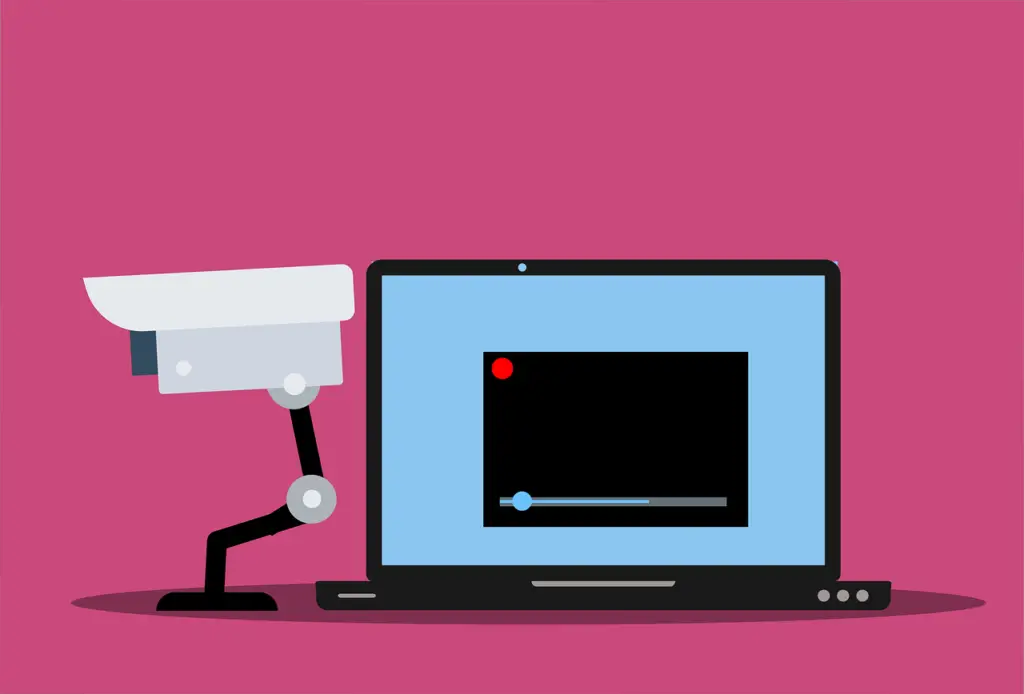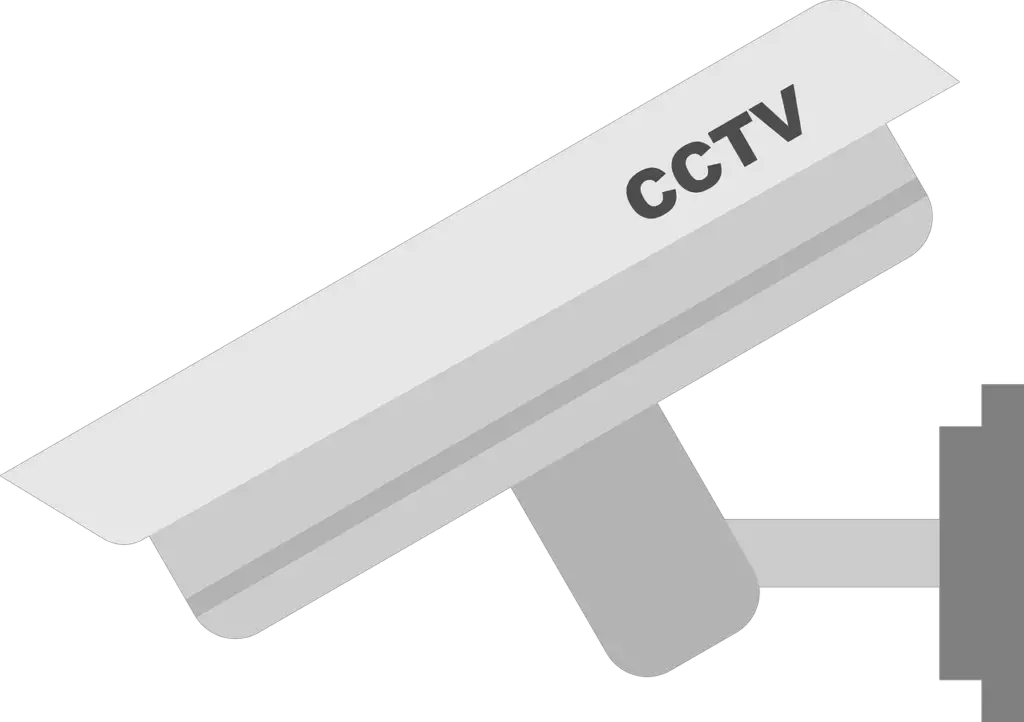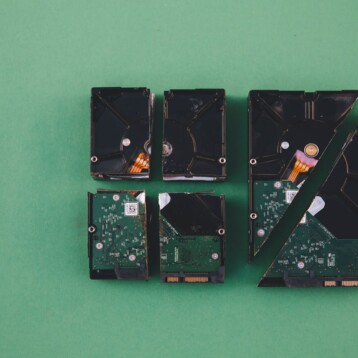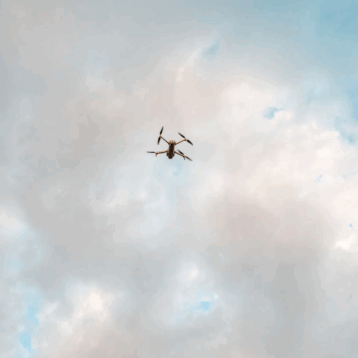
Crime rates are alarmingly on the rise in these recent years. With the state of how things are, it is only for the best to install CCTV cameras around your house and areas where you need security. As the saying goes- “Better Safe Than Sorry.”
The two most common questions that people looking to buy CCTV cameras are very simple – Do CCTV Cameras record voice? Is it legal to do so?
Well, if you are also part of the common mass that has these questions, keep reading this article.
Key Takeaways
- Yes, CCTV’s that have built-in microphones can record audio and video.
- CCTV with audio features is of two types – Analogue CCTV and IP CCTV. IP CCTV has better audio quality than analogue.
- There are legal considerations associated with audio recording via CCTV. One has to check that they are in compliance with their state laws and federal laws.
How Does A CCTV Camera Work?
CCTV cameras operate on the technology of digital video recorders (DVR) or network video recorders (NVR). They capture video footage and transfer it into either of the mentioned recorders. The DVR or NVR then stores the captured and transmitted video on a hard drive or cloud storage. The footage recorded is accessible for viewing via a mobile device from the convenience of your location.
Does CCTV Camera Record Voice And Audio?
In short, yes. CCTV cameras can record audio and voice. This however depends on the kind of CCTV that one purchases. Some modern CCTV’s come with a built-in microphone. These microphones are waterproof, so they can withstand harsh weather as well.
CCTV that can record audio are of two types. The modern IP CCTV and the traditional Analogue CCTV.
How Is Analogue CCTV And IP CCTV Different?
Analogue Cameras operate in the traditional old manner. This means that in order to have audio recorded it needs to be input directly through the DVR. Hence, audio records in analogue data and converted to digital at the recorder. The essential drawback in this is the limitation of DVR. These have limited inputs, so one needs to carefully choose which cameras can capture sound amongst all the CCTVs installed.
IP CCTV on the other hand are premium security cameras. They are mainly used by businesses for secure systems. It works by coalition of the audio data with the camera itself and not through inputs. Thus, the sound bites digitize immediately. IP CCTV thus works like a normal camera recorder on your phone, recording audio and video at the same time in high quality.
Now that we know the answer to Can CCTV record audio, it is also essential to know the legal implications of doing so.
Is It Legal For CCTV To Record Audio?

The legality of recording audio via CCTV is dicey. It is dependent on several factors, including the various jurisdictions of State Law and Federal Law. The context of the need to record audio is also factored in during case proceedings.
Federal Law in general permits audio recording if at least one party involved in the conversation consents to the recording. This is also called “one-party consent”. However, some state specific laws have stricter regulations when it comes to consent to audio recordings. These regulations require that both the parties who are in the audio are to consent to it. This is called “two-party consent.”
Thus, in states where there exists the “two-party consent”, audio recording via CCTV in such states will be considered as illegal. This trickiness of recording in legal sectors is not just exclusive to the two-party rule.
Even in one-party consent states, there are reasonable restrictions when it comes to the way in which audio recordings shall occur. In areas where an individual has reasonable expectations of privacy, such as their homes or in private business areas.
In such cases, it is essential that the operator of CCTV is aware of their state specific laws, regulations and jurisdiction when it comes to recording audio via CCTV. This is to ensure there is compliance from the operator’s side and avoid potential legal issues.
How To Disable Audio Record Feature On CCTV?
Most CCTV operate through a built-in microphone in them to record the audio.This can easily be disabled when you wish to stop recording audio and only need the video. To do this, you can find the mic disabling button on the body of the camera itself. Otherwise you could also disable the audio from the CCTV software or app on your laptop or mobile phone.
If your CCTV has a microphone that does not have the disabled feature, you could use some heavy duct tape to cover and muffle the audio. This way the microphone will not be able to capture anything.
Benefits And Drawbacks Of Recording Audio On CCTV
Recording audio on CCTV comes with several benefits. The first and foremost being the capture of evidence in case of incidents. These could be to submit evidence for your insurance claim in the event of theft, robbery or something else of a drastic nature.
Audio recording on CCTV also helps to detect unusual sounds and occurrences. This proves especially beneficial if you’re away on a vacation and have valuables at home. You can monitor the safety of your house at your convenience from any place in the world.
However, as nice as the benefits sound. There are also certain drawbacks to audio recording on CCTV. For starters, audio recording CCTV cameras are more expensive than a plain CCTV camera that will just shoot video. They also take up larger storage space on the drive or cloud due to additional files and larger recording data.
Where To Use CCTV?
CCTVs are best used in businesses, specially places where security is a must for the kind of business you are a part of. Examples include jewelry stores, banks, supermarkets etc. It is also essential for employee safety and protocol.
If your residential area is in a surrounding that has some safety hazards, installing a security camera is of best practice to make sure your house and family are secure.
Conclusion
It is a good practice in safety and security to have CCTV installed in your office or home. It showcases that you value safety and responsibility for your goods, and the people around you. Just ensure that you are in compliance with the legal rules of audio recording via CCTV, and you’re good to go!










